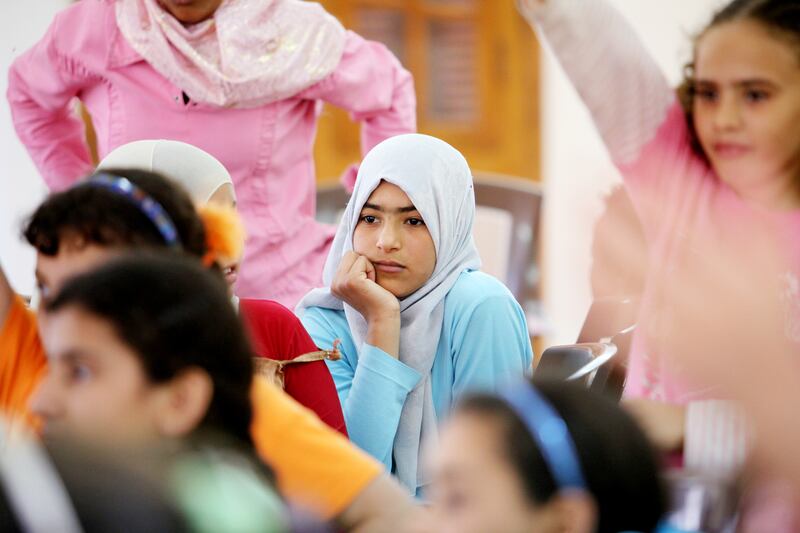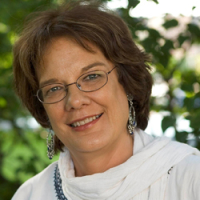This has been quite a week for all of us working for the rights of women and girls. Today, on International Women’s Day, I’m excited about a significant milestone in the movement to end female genital cutting (FGC).

Supporting communities as they abandon FGC has been my focus over the last 15 years as founder and director of Tostan, a nonprofit organization working in eight African countries where the practice is prevalent. Up to three million girls in Africa alone are at risk of undergoing female genital cutting each year. It involves the partial or total removal of the external female genitalia, has no health benefits, and is a violation of girls’ and women’s human rights.
In the last few weeks, we had heard that the British government planned to announce a contribution toward the end of this practice, but no one expected that it would be the single biggest international investment ever made on this issue.
The commitment announced by Lynne Featherstone, the parliamentary undersecretary of State for the Department of International Development, on Tuesday at the 57th U.N. Commission on the Status of Women, is staggering—more than $50 million to contribute to the end of female genital cutting within a generation.
The government will develop a new program that is expected to reduce FGC by 30 percent in 10 priority countries in five years. The target is ambitious, yet achievable—I witness every day the momentum of social change that is being generated by communities because of their new knowledge of human rights and the health issues involved.
The U.K. funds will support working directly with local communities and traditional leaders and governments looking at legislation to end FGC. It will also address diaspora communities, recognizing the importance of the link between immigrants and their homelands in effecting social change, and will fund research into the most cost-effective approaches to ending FGC.

Featherstone noted what is critical for abandonment of the practice: “We know most families want the best for their children and education, and changing cultural norms, rather than merely condemnation, is key.” Such an approach has been central to Tostan’s holistic informal human-rights-based education program, a program that takes into account the dynamics of social change. We are looking forward to discussions with the minister during her upcoming visit to Senegal to see Tostan’s program in action.
With more than 5,500 communities having already publicly abandoned female genital cutting—Senegal is very close to becoming the first entire country to abandon it—we need to take steps to rally around this movement.
Our opportunity is not simply making a transition to a new reality where FGC is no longer the norm. Rather, we must learn as we go, so that Senegal can be used as a model for transformational change at the grassroots level.
We also need to follow what works: since the first public declaration for the abandonment of FGC at Malicounda Bambara in 1997, communities that went through the Tostan human-rights-based education program have shown the way for the FGC abandonment movement to grow and spread across social networks and country borders. When communities choose to abandon the practice, they share their knowledge and decision with others and the movement grows organically.
Tostan’s focus for the next few years is to expand our approach into Senegal’s five neighboring countries where intermarrying networks have already started abandoning the practice, in Guinea, Guinea-Bissau, Mali, Mauritania, and Gambia. We are also seeing results from our program in Somalia, where communities in Somaliland and Puntland have already publicly declared their abandonment of FGC.
It is important to acknowledge all of the incredible work that has been done—by the inspiring communities themselves and all those who have championed this issue: African governments, activists, NGOs such as KMG, the Inter-African Committee, Equality Now, Forward, No Peace Without Justice, our key partner Orchid Project, donors, and health practitioners. DFID brings a strong new voice to an ever-growing chorus for the end of this practice. We commend the work that has been accomplished by the UNFPA-UNICEF Joint Programme with key country donors such as Norway and Italy, who have contributed greatly over the last five years, and all those around the world supporting the abandonment of this practice.
With the recent British government investment, we hope that more grassroots holistic education programs will be funded so we not only see an end to FGC, but also the end of other practices holding back women and girls and their communities, such as child/forced marriage and girls’ education. Perhaps even more important, support for participatory, community-led action at the grassroots level can become a model for community-led development all over the world.






